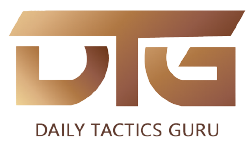Economics can be a fascinating and enjoyable subject of study. Without the aid of formal education, you will study economics on your own. If you’re ambitious, you should start studying economics while you’re in high school or perhaps sooner. You will continue to enjoy what you do in college and even after graduation. When learning economics, you must also learn how to prepare for tests to understand the templates and do well on them.
The study and definition of the production, distribution and consumption of scarce goods and services are the primary economic subjects. Since it tries to understand people, communities, and organizations’ actions, economics is considered a social science and also gets economics essay help.
Method: How to learn or teach Yourself Economics
- Start by watching economics videos to understand the fundamentals: On pages like YouTube, you can find various economics tutorials. Look for videos of well-known economists and professors, and watch them learn more. Before going on to other videos, begin with introductory videos on microeconomics and macroeconomics. First and foremost, you must master the fundamentals.
- Visit reputable blogs to learn more about economics: Many reputable websites have simple economics knowledge, and you will find a whole world to discover. Look for “.edu,” “.gov,” or “.org” domains, as well as other well-known websites.
- To search or explore a bit more, pick up a used textbook: You don’t have to be in a class to purchase a textbook to master the fundamentals of economics. To select a decent textbook, ask your mates who have taken economics classes or look at ratings.
- Look at other economics articles: Textbooks are a perfect way to learn about economics, but many other books can help you broaden your understanding. Furthermore, since all of them will not be as dry as textbooks, you will learn more because you will be amused as well.
- In high school, concentrate on economics: Take economics classes in high school to start your financial education. Most schools have at least one economics course, and many have more. If your school doesn’t provide it, see if you can take classes at a nearby community college; several colleges encourage you to take classes simultaneously and also get economics assignment help.
- Start with the university’s introductory courses: While most programs already need it, it’s a good idea to start with the fundamentals. Get the beginner courses out of the way first so you can focus on the more advanced classes.
- Take several economics classes: Try to take some economics courses when you’re first starting. You’ll probably want to specialize in a sector at some point, but it’s difficult to do so if you haven’t been exposed to a wide variety of topics in the field.
- When you near graduation, practice independent work: You’ll need to work on your own more as your degree progresses. Begin by concentrating on being self-sufficient as soon as possible. For example, try working through problems on your own to get a deeper understanding of the course material. You’ll be working or going to graduate school after you graduate, so being able to think independently is crucial.
- Rather than memorizing, study through working through problems: If you’re one of those people, you’ve been told that the best way to learn is to memorize information. Although knowing some main facts is important in economics, understanding how the models work is even more important.
- Examine the key points and subtopics you’ve addressed: Examine your notes and textbooks for the key ideas you need to cover, as well as the subtopics you should investigate. Divide your research time between these topics so that you have sufficient time for each.
- Every day, do a little bit of economics: You’re well aware that cramming isn’t the most successful way to learn. You’re stressed out, and you don’t learn the content properly as a result. Instead of cramming the night before an exam, spread it out for several weeks, focusing on economics a little each day. Reminding yourself of the information on a regular basis will make it stick in your mind.
- Prioritize the things that are the most difficult for you: When you sit down to read, start with the subjects you don’t enjoy as much. As a result, when you’ve been working for a few hours and have a little less motivation, you’ll be able to devote more time to the activities you enjoy.
- Make use of tools outside of class to help you learn more effectively: Going over the same material over and over can become boring and dry. Plus, if you’re having trouble understanding anything, reading the same section of the textbook over and over won’t help. Instead, learn more about the topic by using online tools such as video guides and reputable websites. It will provide a breath of fresh air, and a different point of view can help you better comprehend the issue.
- Follow the instructions in your teacher’s study guide: If your professor or instructor has provided a study guide, make sure you use it. Things on the study guide are often structured as they would be on the exam, so go through it thoroughly.
Conclusion
Many interested in pursuing an economics degree have a variety of choices. You can choose to pursue an undergraduate or graduate economics degree, or online economics courses, based on your personal and professional goals, the current stage in life, and other important factors. Having a comprehensive understanding of how markets work, pricing strategies, and customer behavior is key to success, whether you’re a newcomer to the business world or a seasoned executive.
